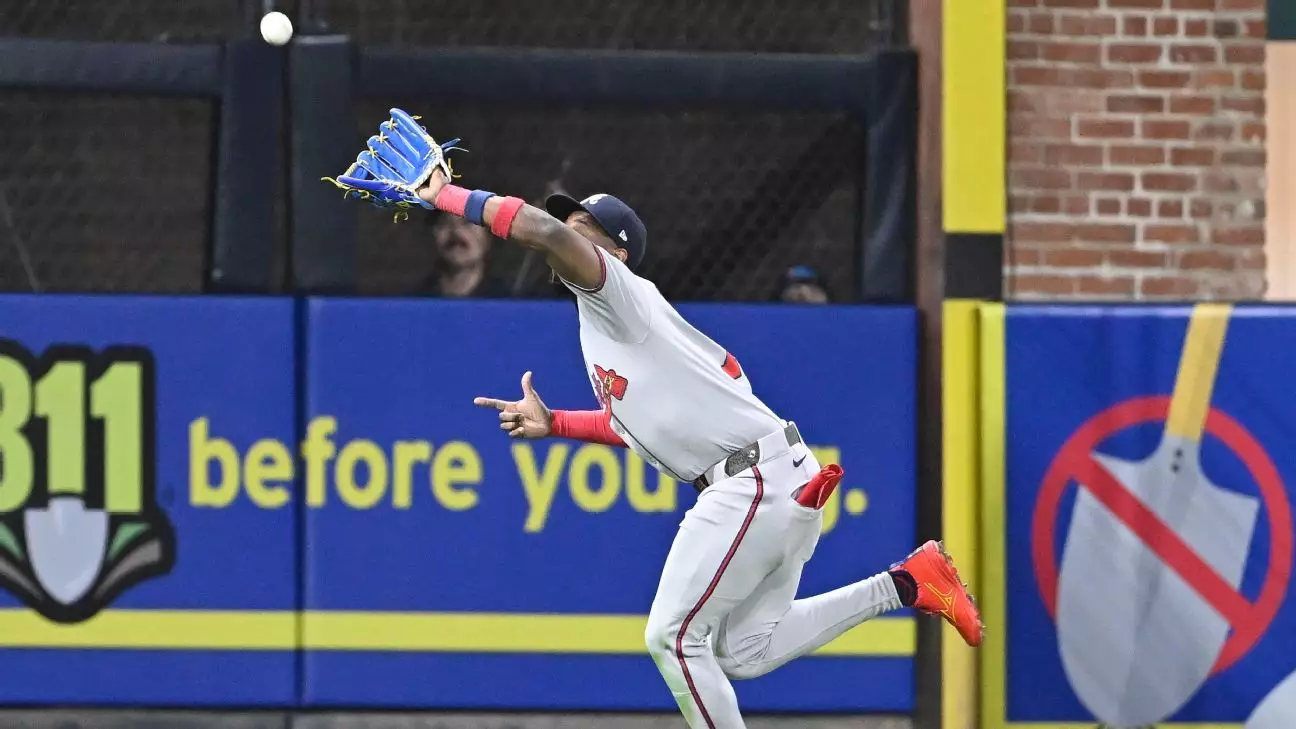In the constantly evolving landscape of professional sports, the ethical standards that govern athletes’ behavior have never been more scrutinized. The recent news surrounding Atlanta Braves outfielder Jurickson Profar’s positive test for a banned substance exemplifies this reality. Profar, previously lauded for his exceptional abilities on the field, is now facing an 80-game suspension that not only tarnishes his reputation but also deeply impacts the Braves’ prospects for the upcoming season. This incident exposes a troubling undercurrent in Major League Baseball that cannot be ignored: the pervasive and sometimes devastating ramifications of performance-enhancing drugs (PEDs).
Profar, who made headlines for his remarkable growth as an athlete—boasting a .280 batting average along with 24 home runs and 85 RBIs last season—appeared to be an essential asset to the Braves after signing a lucrative three-year deal worth $42 million. His potent combination of skill and experience reinforced a sense of hope for the franchise in rebuilding its competitive stature. But with the revelation of his failed drug test, Profar is now casting shadows over what could have been an illustrious career.
Awareness and Responsibility
The most alarming aspect of Profar’s situation is his own declaration of innocence. In his statement, he expressed being “devastated” and emphasized his commitment to the game, claiming he had tested negative on multiple occasions prior to this incident. This raises a troubling question: How can a player with such extensive testing in his recent history suddenly find himself entangled in a scandal of this magnitude? One cannot help but consider the implications of systemic failings within sports organizations. While Profar may contend that he has never knowingly ingested a banned substance, the greater responsibility lies within the frameworks set up by MLB.
As athletes approach their physical peak, they are often lured by the seductive promise of performance-enhancing substances, whether knowingly or unknowingly. The blame cannot rest solely on their shoulders; the league must foster an environment that prioritizes awareness and comprehensive education on the risks and consequences of PED use. The growing reliance on strict regulatory policies, like the MLB’s Joint Prevention and Treatment Program, should ideally serve as a deterrent rather than a band-aid solution.
The Impact on Team Dynamics
The Braves are now left with a significant gap in their lineup that can’t be easily filled. Profar’s unforeseen absence compounds the already precarious situation the Braves find themselves in, having recently endured a disappointing four-game series against the Padres. Their inability to score runs during critical moments reflects the palpable strain within the team. While the organization has made moves—such as bringing in outfielder Stuart Fairchild from the Cincinnati Reds—the heart and spirit of a team are often tested in the face of adversity.
Moreover, the suspension raises concerns about the message sent to fans and aspiring young athletes. The fallout from Profar’s actions creates a ripple effect, as it brings into question the ethics of the sport. Are we nurturing a culture where victories are overshadowed by ethical violations? Profar’s public apology to fans and teammates may serve to mend his relationships, but the consequences for the Braves and their supporters are sentimentally greater.
The Broader Implications
In a sport that thrives on competition and exceptionalism, Profar’s case holds a mirror to the system itself. It prompts broader discussions about integrity in sports, athlete mental health, and the lengths individuals will go to secure their place in professional leagues. The question doesn’t solely focus on whether Profar is guilty or innocent; it probes the deeper issue of an industry that often finds its integrity compromised by the allure of success.
Ultimately, Jurickson Profar’s suspension serves as a poignant reminder that the line between ambition and ethical boundaries can easily blur. The athletes must own their decisions, but it is equally critical for the leagues to create an unyielding foundation of support and education that disallows any form of ambiguity. Only through such a transformative approach can the sport guide itself back onto a trajectory of integrity and trustworthiness that fans, players, and future generations can respect.



Leave a Reply